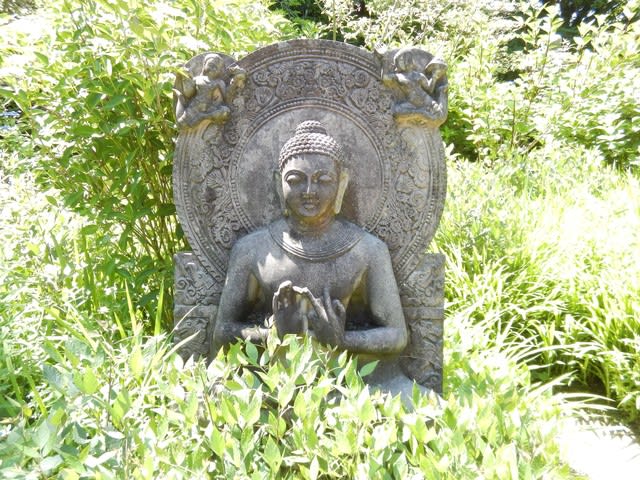When we think about it this way, the driving force behind European civilization is
1. Freedom, democracy, aristocracy
- Military
- Women
As a relatively weak driving force,
- Duality (Spirituality and Secularity)
- Cosmopolitan and Knowledge
- Cosmopolitanism and Industrialism
- Duality and Separability
However, this is only relative, and even today, the European civilization, including America and Russia, has considerable power.
How should Japan deal with this? Due to its postwar historical background, Japan is on the periphery of the European civilization sphere and is under the influence of the liberal and capitalist United States.
If we include the long culture from before the war, there may be values similar to those of the core of European civilization. In other words, there is a national character that cannot be solved simply by the logic of marketism or capitalism, and there is also envy for American values. We have previously considered the content of the driving force that drives European civilization, but as Europe unites into the EU, and as the United States and Russia exert their influence on the EU, it may be possible that new forms will be given to freedom, democracy, and aristocracy. Freedom is the impact on the economy, equal opportunity based on the individual, and human capitalism, in other words, how we think about the "concept of freedom" in the EU or local era. "Democracy" is about the separation of powers and what kind of parliament we should make. "Aristocracy" may be related to how we deal with mass social phenomena, or how to thicken the middle class. These elements may be unique to Japan, but there is a high possibility that they will be born in the "laboratory" of world history that is the EU. However, in modern European civilization, "duality (spirituality and secularity)" and "duality and separation" are weaker than in past European civilizations, so it is unclear whether it will produce the same level of creativity as before, but it does seem that the current European mentality is gradually moving toward spirituality.
Next, regarding the military nature that is a characteristic of this civilization, Europe, even though it has fought so many wars, is more cautious and realistic about security than Japan. The EU will have its own military, and the United States and Russia may eventually join in. In other words, it will be preparing for Chinese, Indian and Islamic civilizations. In that case, it seems that Indian civilization is the one with which European civilization is most likely to link up. There is the issue of how to relate to Islamic civilization, and the question of whether Islamic civilization, the original cosmopolitan and network civilization, and its successor, the European civilization, can cooperate with each other. Islamic civilization is probably a civilization that knows the ins and outs of European civilization. In comparison, Indian and Chinese civilizations can be said to be local civilizations. Although they are both local, the reason why they are more likely to link up with Indian civilization rather than Chinese civilization is because, although European and Indian civilizations have similarities, Indian civilization is not a network civilization like Islamic civilization, and is also important geopolitically. Indian civilization is a barrier against Islamic civilization, and a barrier that can also serve as a check on the distant Chinese civilization. Therefore, it is highly likely that Islamic civilization and Chinese civilization will be linked as opposing axes, and even in the European civilization sphere, Russia may cooperate with China due to security issues in the Far East or issues in Central Asia, and may try to make China expand southward, so it may not be possible to simply group them together in the European civilization sphere. As a reaction: fourth principle (principle of reaction and internal principle), Russia may become Sinicized and Islamicized. For the same reason, it is possible that America will become Latinized as a reaction: fourth principle (principle of reaction and internal principle). In the case of America, it will not lose its European civilization, but the Anglo-Saxon elements may decrease.
Japan has been influenced by America in the course of history, and although it has a culture close to European civilization, it did not meet any of the seven elements of European civilization, so it is possible that the driving force behind Japan's history was something else. From now on, the influence of Chinese civilization will grow worldwide, while European civilization will unite with the EU, the US, and Russia, although there will be a reaction. This is what will maintain the hegemony of European civilization, but it seems that Japan would be better hanging on to it in a modest way. The same development will probably be seen in Indian civilization. However, perhaps European civilization, which is a cosmopolitan and networked civilization, and Islamic civilization are connected behind the scenes. If we think about it like that, the premise of our previous considerations will change. If this is the case, then cosmopolitan civilization will dominate local civilizations such as Chinese and Indian civilizations. And the trial and error in the EU may become a "model experiment toward a world government."
As for Japan, it may be best to basically maintain cooperation with the United States, place importance on India together with the United States, take a fair and fair approach to China and Russia, and remain neutral toward the Islamic civilization. As the center of the European civilization and an experiment in a new era, we may be able to expect an era of new ideas and an evolution of ideas from European civilization, but we cannot expect the same kind of progress as in the 16th, 17th, and 18th centuries. Therefore, the question for Japan is whether to coexist with European and Indian civilizations, or with European and Islamic civilizations. Japan may feel more comfortable in Europe and India than in the monotheistic and cosmopolitan Europe and Islam.
Finally, let's think about how European civilization can influence world civilization. Perhaps the only characteristic of European civilization is that it created the idea of "freedom." And when we think about where it originated, it seems to have been in Greek philosophy. Individual philosophy, democracy, and Greek classics, Greek philosophy also influenced Asia during the Hellenistic and Byzantine periods, where freedom did not blossom under despotism. Although the Roman Empire respected republicanism, it followed the path of despotism. Christianity also grew in this environment, but since Christianity first grew in what is now Turkey and Greece, it may have been Byzantium, or what is now Greek Orthodox, that was the strongest influence of original Christianity. European civilization (classical European civilization) was formed by Greek civilization, Christianity, and the invasion of Germanic tribes, and its characteristics are that it was created in a form different from despotism. First of all, it was not that individuals were free, but that society was free and separate, which was its characteristic. In this separation, the spiritual kingdom of Catholicism grew to the size of a national organization, and the importance of the spiritual was raised above other civilizations. The Renaissance was a reaction to this, but the Protestant Reformation was a religious aspect in which the importance of the spiritual in the individual shifted from the religious (divine) to the human, and this period overlapped with the infancy of the sovereign state. The idea of freedom emerged in this overlap (spiritual, social), reaching the natural rights of the individual, and the turning point for this was the various revolutions in England, but it was the American War of Independence that reached this point as an institution, not as an individual. It was liberation from Europe, and the reaction that influenced Europe was the French Revolution.
And after 1848, democracy and nationalism began to spread slowly throughout the world.
I mentioned "freedom" earlier as a characteristic of European civilization, and I think that the basis of this was "freedom of religion." This then became "freedom of worldview," and social issues arose as to how much of this could be guaranteed in communal living with others, but if we could not survive in the first place, we could not afford to talk about "freedom of worldview," so I think that social issues shifted their weight to this issue.
When we think about it in this way, we realize that the idea of "freedom" is a historical product of European civilization. What was originally freedom in the political sense evolved into freedom in the socio-economic sense during the transition from feudal society to capitalist society. This occurred at the same time as the establishment of sovereign states and the colonial rule of other regions by the central nations of European civilization.
In feudal society, there was relatively little idea of equality, but as the bourgeoisie took the lead and went through the civil revolution and the industrial revolution, the idea of equality in a social sense grew, which gave rise to socialism.This increase in equality was achieved through the masses' participation in the economy and war.
What kind of impact will these characteristics of European civilization have on world civilization? The core values of world civilization are already European, and with the collapse of the Soviet Union, it has become clear that the idea of "freedom" is a more fundamental "value." On the other hand, the value of "equality" remains in the form of Chinese civilization and in European social democracy, but China's current situation cannot necessarily be called socialist, and the EU's situation also seems to be a reaction to liberalism and globalization of the economy.
The values that originated in European civilization - "liberty" and "social equality" - are likely to be influenced by the reactions of Islamic, Indian, and Chinese civilizations. However, it seems that we are entering a period in which the assumptions upon which the concepts of "liberty" and "social equality" have been established in European countries will be reexamined, and questions will be asked as to how they can be established in the context of a global civilization .
All rights reserved to M Ariake






























